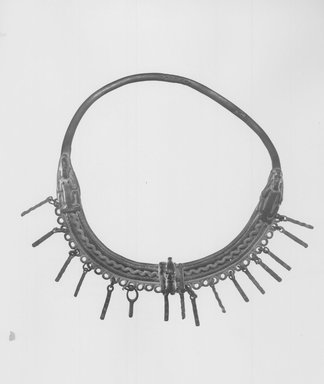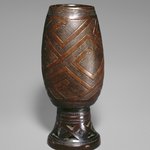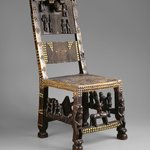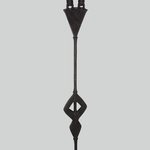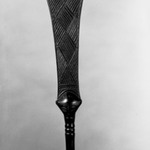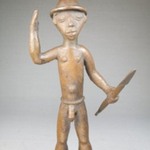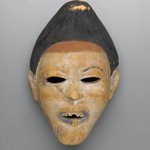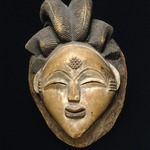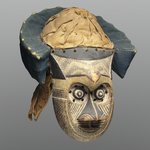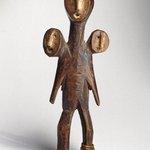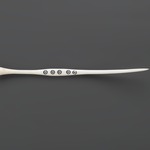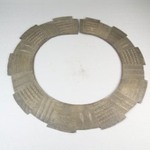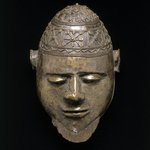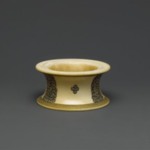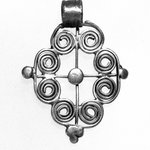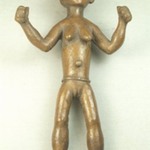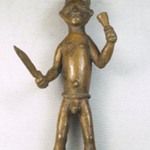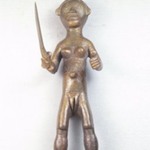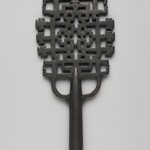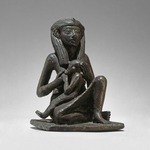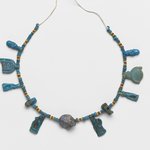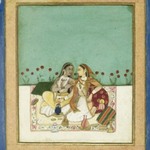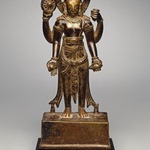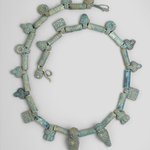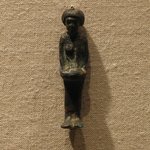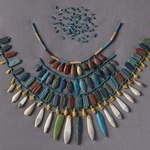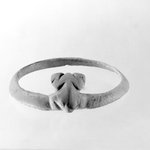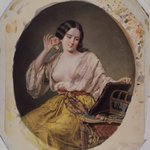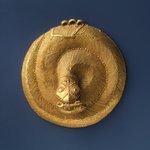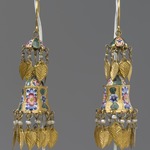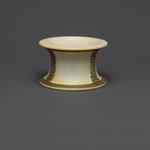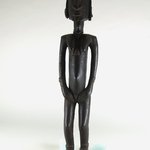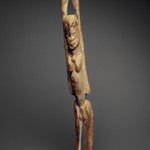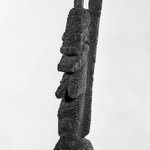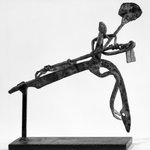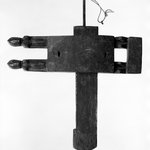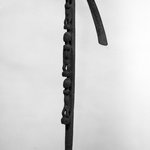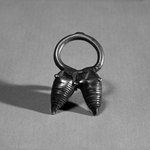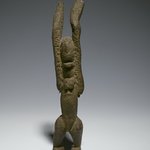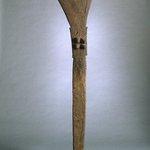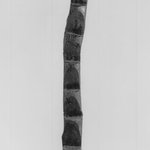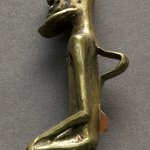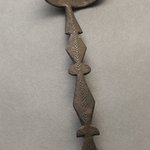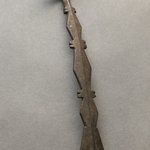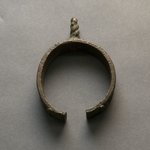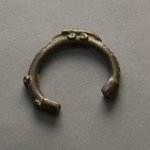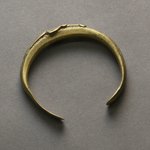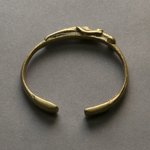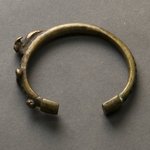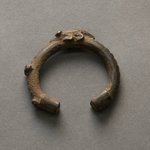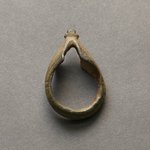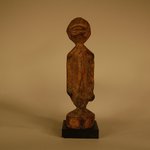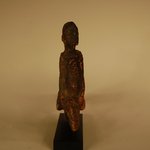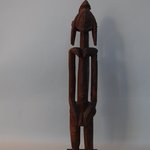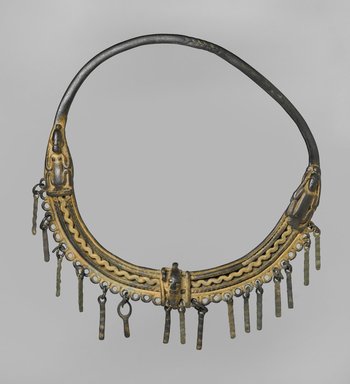
Necklace
Arts of Africa
Among the Dogon, jewelry often serves as much more than personal adornment. For example, bracelets, rings, and necklaces might signify that the owner is linked to ancestors or spiritual leaders, or identify the wearer as a priest or a caretaker of a particular altar. The two seated figures on this necklace or collar most likely represent Nommo, the original beings created by the god Amma, who may be represented by the central face. The necklace was probably worn by a hogon, an important priest.
CULTURE
Dogon
MEDIUM
Copper alloy
DATES
11th–15th century (?)
DIMENSIONS
9 x 9 x 1 in. (22.9 x 22.9 x 2.5 cm)
Diameter: 9in. (22.9cm) (show scale)



COLLECTIONS
Arts of Africa
ACCESSION NUMBER
74.67
CREDIT LINE
Gift of Mrs. Jacob M. Kaplan
CATALOGUE DESCRIPTION
A brass necklace decorated with two seated Nommo figures. The arms and legs of the figures are serpentine like; the arms are both raised. Their heads are elongated. At the center of the necklace is another head. Sixteen small rectangular pendants are suspended from the front of the necklace. CONDITION: Generally good. One pendant is missing from its ring.
EXHIBITIONS
MUSEUM LOCATION
This item is not on view
CAPTION
Dogon. Necklace, 11th–15th century (?). Copper alloy, 9 x 9 x 1 in. (22.9 x 22.9 x 2.5 cm). Brooklyn Museum, Gift of Mrs. Jacob M. Kaplan, 74.67. Creative Commons-BY (Photo: Brooklyn Museum, 74.67_PS2.jpg)
IMAGE
overall, 74.67_PS2.jpg. Brooklyn Museum photograph, 2007
"CUR" at the beginning of an image file name means that the image was created by a curatorial staff member. These study images may be digital point-and-shoot photographs, when we don\'t yet have high-quality studio photography, or they may be scans of older negatives, slides, or photographic prints, providing historical documentation of the object.
RIGHTS STATEMENT
Creative Commons-BY
You may download and use Brooklyn Museum images of this three-dimensional work in accordance with a Creative Commons license. Fair use, as understood under the United States Copyright Act, may also apply.
Please include caption information from this page and credit the Brooklyn Museum. If you need a high resolution file, please fill out our online application form (charges apply).
For further information about copyright, we recommend resources at the United States Library of Congress, Cornell University, Copyright and Cultural Institutions: Guidelines for U.S. Libraries, Archives, and Museums, and Copyright Watch.
For more information about the Museum's rights project, including how rights types are assigned, please see our blog posts on copyright.
If you have any information regarding this work and rights to it, please contact copyright@brooklynmuseum.org.
RECORD COMPLETENESS
Not every record you will find here is complete. More information is available for some works than for others, and some entries have been updated more recently. Records are frequently reviewed and revised, and we welcome any additional information you might have.
